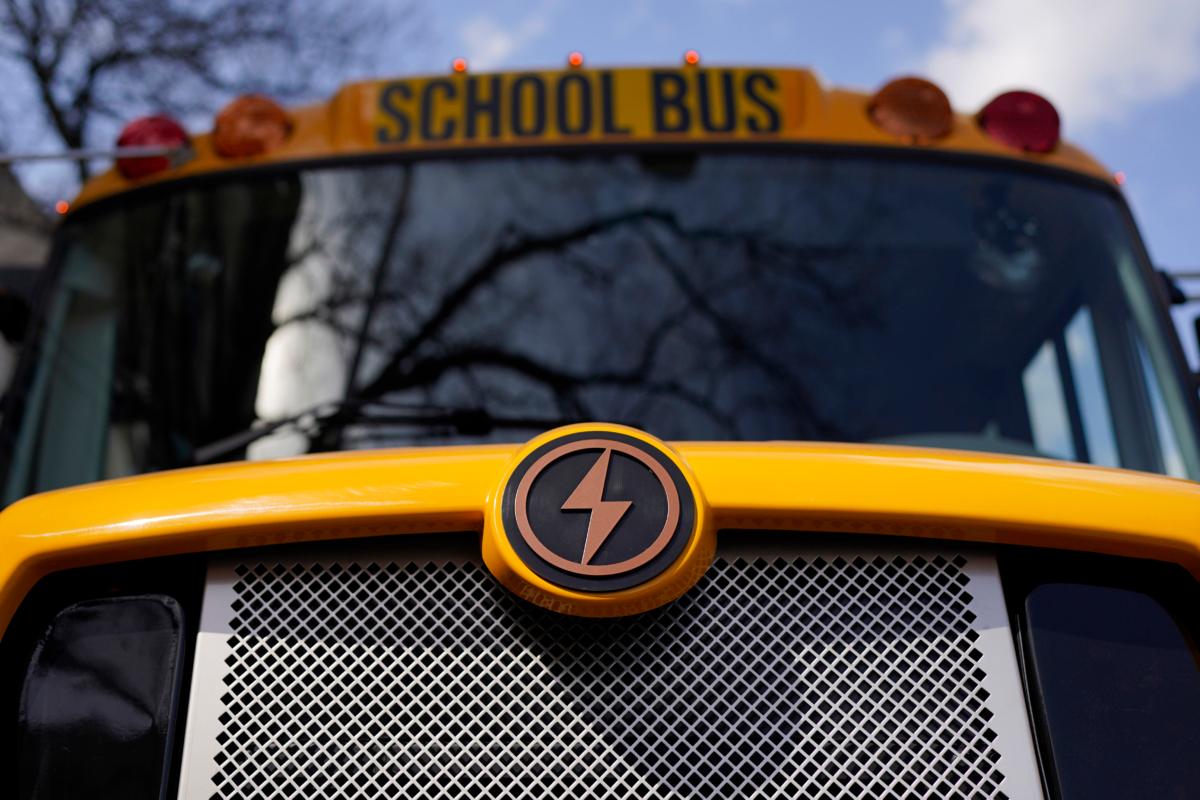In two-year commemoration of landmark bill’s adoption, municipal leaders tout benefits of 2022 measure that Republicans in 2024 campaigns vow to repeal.
With elections on the horizon in November, the fate of the landmark IRA is on the ballot. If Republicans triumph and former President Donald Trump regains the White House in January 2025, it’s going away—quickly.
If so, some fear the proverbial baby will be tossed with the bathwater because the IRA, they say, has proven to be a boon for local governments, school districts, and small businesses in upgrading infrastructure, lowering energy costs, and generating jobs while also enhancing national security.
Dozens of local government representatives and investors, including from The Roddenberry Foundation, commemorated the second anniversary of the IRA’s adoption during an Aug. 12 presentation in Washington sponsored by Elected Officials to Protect America (EOPA).
A network of current and former municipal and state officials from all 50 states, EOPA’s National Climate Emergency & Energy Security Task Force coordinates with the U.S. Department of Energy, the White House’s Justice40 communities initiative, corporations, and nonprofits “to equitability implement opportunities” available under the IRA.
EOPA founder and President Alex Cornell du Houx, a former two-term Maine House representative, said the IRA addresses local government needs in a way that “has never happened before,” noting his aim is to “inform leaders what is happening, assist with grant writers … and make sure money gets to communities that need it most.”
Among the IRA’s provisions is the Greenhouse Gas Reduction Fund, a $27 billion grant program for nonprofits and municipalities to pay for clean energy projects, including those in “underserved communities.”

IRA Levels ‘Playing Field’
“IRA is helping level the playing field for small communities,” said Donya Sartor, mayor of Jonesboro, Georgia, near Hartsfield–Jackson Atlanta International Airport, where the local school district received $20 million to replace diesel buses with electric buses.
Among her missions, she said, is ensuring that constituents know Georgia has $219 million in IRA money for home energy rebates and can save 41 percent on electricity costs “by replacing and upgrading appliances.”
The IRA has empowered local government leaders who often feel that they’re “exempt from the problem” because they didn’t have the money to address the problem, Sartor said.
The IRA is a “job-creating, opportunity-making, change-of-life [that is] investing in every corner of the country and something we haven’t seen since [President Franklin Roosevelt’s Depression-era] ‘New Deal,’” said Alex Walker-Griffin, who sits on the city council of Hercules, California.
He said it takes 90 minutes in traffic to drive 17 miles from Hercules to San Francisco. The city received $850,000 in IRA money for its affordable housing, mass transit Hercules Hub project that “is taking cars off the road.”
Marshall Archer, deputy mayor of Saco, Maine, called the IRA an “investment in security, prosperity, and health,” noting that of the 9 million jobs that proponents say it will create in a decade, at least 50,000 will be in coastal towns such as his.
The IRA provides up to $75 million in rebates for Maine residents to install heat pumps and “get off the [heating] oil,” he said.
“Climate change impacts are not a distant possibility but a changeable inevitability,” he said.
Swissvale Borough Councilman Fred Quinn said the Pittsburgh suburb of 12,000 used IRA grants for “infrastructure upgrades” to power 33,000 area homes, purchase an electric-powered garbage truck, and install its first electric vehicle charging station.
The IRA earmarks nearly $400 million for Pennsylvania projects that will create 43,000 jobs by 2030, he said, calling it an economic development measure more than a climate change bill.
“IRA is a catalyst for economic development,” Quinn said. “Job creation, job creation, job creation—new union, clean-energy jobs.”
Roddenberry Foundation Chair Heidi Roddenberry, whose father-in-law, Gene Roddenberry, created the Star Trek franchise, said that in just two years, the IRA has advanced numerous projects in Southern California, including microbial agitation to recycle cleaned water.
The foundation is “about big, bold ideas for catalytic change,” she said, calling on philanthropists to consider joining the foundation in working to “de-risk” first investors.
The IRA is also a civil rights and health bill, officials and proponents said.
“It is a climate justice law,” “Star Trek: The Next Generation” actor Yetide Badaki said, equating proponents to “civil rights leaders who’ve come before.”
“I see this law moving us toward a more perfect union,” she said.
Walker-Griffin said the IRA is filling a niche in the Bay Area, a place of “the haves and the have-nots, missing those middle-class jobs” now being created.

End Reliance on Petro ‘Dictators’
The IRA also is a national security bill, according to du Houx, a Navy Reserve officer who served as an enlisted Marine in 2006–2007’s Battle of Fallujah in Iraq and was in a convoy hit by a roadside bomb.
The man who planted the bomb wasn’t in al-Qaeda but needed money “because his crops failed” from drought, he said.
“As a young Marine, the pieces started to fit together. Other veterans had similar stories,” du Houx said, noting that one in 20 U.S. military convoys had casualties and that the things they carried with them most were water and fuel.
The experience made him think “how deeply we are, unfortunately, connected to a single source of energy” and “dependent on autocratic dictators” in OPEC and elsewhere, he said.
The “biggest example is Putin,” du Houx said, suggesting the United States “would have had a better response” to Russia’s February 2022 invasion of Ukraine “if Europe wasn’t dependent on Russia” for oil and natural gas.
Archer, who served two tours in Iraq, agreed.
“Reliance on fossil fuels is a vulnerability we can no longer ignore whether on the battlefield or at home,” he said.
Jordan Meade, who sits on the Kent County Council in the United Kingdom, said the IRA will enhance global security by being “community-first in everything.”
Since 2010, Kent, “the garden of England,” where more than 70 percent of land is agricultural, has seen “solar farms” established, investments in heat pumps, and retrofitted schools that are “saving hundreds of thousands of pounds to reinvest into education” under British climate change policies.
These investments help Kent “protect agricultural land from the bulldozers of development,” Meade said, calling the IRA a visionary measure that “unlocks the power of market-based solutions.”
He alluded to fall’s elections and the prospect the IRA could be diluted or repealed by Republicans claiming to be conservatives.
But a conservative was among the first to warn about climate change, Meade said, recalling British Prime Minister Margaret Thatcher’s 1989 United Nations address.
“Thirty-five years later,” he said, “we should revisit Thatcher’s foresight and reconsider how and why the IRA should not be just another policy that is shelved.”
Original News Source Link – Epoch Times
Running For Office? Conservative Campaign Consulting – Election Day Strategies!


